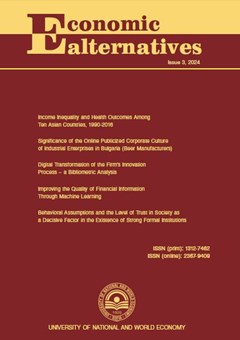Problems of Human Resource Development in the Georgian Banking Sector
Authors: Ana Chagelishvili, Nino Paresashvili
Abstract
The banking sector of Georgia is an important part of the country’s economy. To provide high-quality financial services, it is necessary to constantly take care of employees’ satisfaction, career success, and development. Banks mainly research the issues of their own personnel development, and a large-scale study reflecting the overall situation has not been conducted so far. Accordingly, this research aimed to study the main problems and trends of human resource development in the banking sector of Georgia. The analysis and the formation of solutions will contribute to the efficient management of organizational processes in the future. The research was conducted using the quantitative research method. 1109 respondents working in all fourteen commercial banks took part in the survey. Data were processed and hypotheses were tested using IBM SPSS Statistics. The research’s main results showed that the professional development conditions of the employees in the regional branches differ from the opportunities of the employees in the head offices or capital branches. Another problem is related to the low involvement of employees in the formation of the individual development plan. Therefore, using the results and recommendations will be useful for any commercial bank operating in Georgia.

